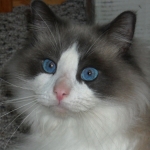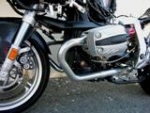Where do I start. I have been going to the doctor and one of my complaints has been fatigue. I am on thyroid medicine but still have many symptoms of hypothyroidism. My doctor now wants a sleep study because she thinks I have sleep apnea. I do not fall asleep during the day but feel physically tired.
When I told my husband, he immediately let me know how he felt about it—he thinks it is all a bunch of hocus pocus and I don’t need a sleep study. I ask him if I snore and he said maybe but not loudly or much. I asked if I gasp for breath or sound like I am not breathing regularly while sleeping and he said he didn’t think so. I seldom get up in the night or wake up. I just don’t want to get up when it is time—not sleepy but fatigue.
I still have not made an appointment for the study and after reading posts on this forum I am very frightened not so much with the results of the test but with all that is involved with using the machine and mask. I just keep thinking how life altering this whole thing will be and wonder if I should just put up with the fatigue. It is scary and I just don’t know if I can do it. I might add that I wear another prosthesis and just not sure I can get used to another routine with there being no guarantee that it will help me with my energy level.
I guess I am just looking for someone to tell me it is worth it or something. Any advice would be helpful.
Thanks!!!
Newbie
Re: Newbie
If you do have sleep apnea then there is so much more to it than putting up with the fatigue. I cannot emphasize enough the importance of having the sleep study done if you doctor recommends it. If you do not have sleep apnea then you can just put up with being tired. If your name, momtwins, is an indication, you have every reason to be tired but perhaps your doctor has a valid reason for the sleep study. I wasn't really that tired but I still was diagnosed with severe sleep apnea. There is no hocus pocus to it, get going!
_________________
| Mask: Swift™ FX Bella Nasal Pillow CPAP Mask with Headgears |
| Humidifier: S9™ Series H5i™ Heated Humidifier with Climate Control |
Re: Newbie
Hi and welcome!
My response is brief -
Wearing the mask isn't natural, so it does take some time to get used to. The majority on this forum refuse to sleep without their mask for even one night.
If you need XPAP and you don't use it - there are plenty of very nasty effects from not breathing enough air - death being the better of some of them.
It's your life, your health - your decision.
Cheers,
xena
My response is brief -
Wearing the mask isn't natural, so it does take some time to get used to. The majority on this forum refuse to sleep without their mask for even one night.
If you need XPAP and you don't use it - there are plenty of very nasty effects from not breathing enough air - death being the better of some of them.
It's your life, your health - your decision.
Cheers,
xena
_________________
| Humidifier: S9™ Series H5i™ Heated Humidifier with Climate Control |
| Additional Comments: Dx 10/14/10. Also a T2 diabetic. High night/fasting numbers prompted a sleep study and here I am :-) |
Re: Newbie
One doesn't need to snore or stop breathing completely to have OSA. You may have hypopnea syndrome and light to no snoring and still be affected with fatigue and, eventually, cognitive decline among other problems. Your husband does you no good in poo-pooing things about which he knows nothing. I'd suggest you start by clicking on the yellow light bulb at the top of the page and start educating yourself... and him about what this is and can do to you. It is an insidious condition that will, eventually, lead to many deleterious conditions if not treated.
I, for one, hardly snored, never stopped breathing completely, but I was extremely fatigued during the day and noticed a mental fog progressively getting worse. I was found to have hypopnea syndrome... which is part of OSA. I averaged 17 events an hour which is low-moderate. Until you go for your sleep study, you will not know the extent of your condition. As for the machine/mask.... you never know, you might be lucky, like me, and take to it right away with few to no issues.
Go for the study..... you will not regret it. If your husband persists, ask him if he is committed to taking care of you should you have a stroke or heart attack due to untreated OSA. Just sayin'....... BTW: there are actually over 80 different types of sleep disorders....
I, for one, hardly snored, never stopped breathing completely, but I was extremely fatigued during the day and noticed a mental fog progressively getting worse. I was found to have hypopnea syndrome... which is part of OSA. I averaged 17 events an hour which is low-moderate. Until you go for your sleep study, you will not know the extent of your condition. As for the machine/mask.... you never know, you might be lucky, like me, and take to it right away with few to no issues.
Go for the study..... you will not regret it. If your husband persists, ask him if he is committed to taking care of you should you have a stroke or heart attack due to untreated OSA. Just sayin'....... BTW: there are actually over 80 different types of sleep disorders....
Yes, that blue eyed beauty is my cat! He is a seal point, bi-color Ragdoll. I adopted him in '08 from folks who could no longer care for him. He is a joy and makes me smile each and every day.
- Sheriff Buford
- Posts: 4110
- Joined: Mon Aug 09, 2010 8:01 am
- Location: Kingwood, Texas
Re: Newbie
Having a sleep study will determine if you have sleep apnea or not. Take the test... see if you have it. If you do, you can decide if you want to treat the apnea with cpap. If you don't have sleep apnea, then there may be something else wrong with you. At least you eliminate the apnea.
Sheriff
Sheriff
_________________
| Machine: AirSense 11 Autoset |
| Mask: Mirage Quattro™ Full Face CPAP Mask with Headgear |
Re: Newbie
If you were suffering from the most common, hallmark symptom of diabetes and your doctor suggested a diabetes test, would you refuse to be tested for fear that you were not up to managing to deal with the resulting life style changes needed to manage diabetes? Of course not. If your doctor wanted you to undergo a stress test (ECG while on a treadmill) to determine whether you have coronary heart disease, would you refuse because finding out you have coronary heart disease will require you to make significant changes to your life style? Of course not.
It's the same with the sleep study: You have daytime fatigue---one of the hallmark symptoms of untreated OSA. So get the sleep study done. It's the only way to determine whether or not you have OSA.
And you need to know whether you have OSA or not. Because regardless of what your hubby believes about it, OSA is a serious condition. Untreated OSA tends to progressively get worse as the years go by and untreated OSA can lead to a wide variety of health problems that go far beyond simply feeling tired during the daytime. Among them are: Increased risks for serious heart disease, strokes, type II diabetes, and drug resistant high blood pressure. Untreated OSA also affects the daytime cognitive functioning and the constant state of being sleep deprived can make you much more irritable and short tempered, without you even realizing just how irritable you've become. Untreated OSA can aggravate depression and may even cause depression in some folks. Untreated OSA can lead to metabolic changes that make it very easy to put on excess weight and also make it much more difficult to lose the excess weight once you've gained it. There are also statistical correlations between OSA and hypothyroidism and between OSA and reflux disease.
And OSA is under diagnosed in this country: It's thought that as many as 4-9% of middle aged Americans may have OSA, and most of them remain undiagnosed. And while we all know the stereotype of who's most at risk for OSA (middle-aged, overweight male who snores like a freight train), in reality, OSA affects people of all sizes, all ages, and both genders. Not all folks with OSA snore audibly. Many of us are normal weight. Many of us are female. And many of the female board members went years with their daytime fatigue being attributed to a wide number of other causes---often menopause or arthritis---before they managed to get a doctor to authorize a sleep study all because they didn't fit that stereotype of who gets OSA.
And if the study shows you don't have sleep apnea, then you will have some peace of mind knowing that OSA is one thing you don't need to worry or wonder about. And you and your doc can move on to looking for other causes for your continuing daytime fatigue.
But if the study shows you do have sleep apnea, then you can start discussing with your doctor whether the apnea is mild enough to possibly treat with an oral appliance or whether you really should be on CPAP. And if CPAP is recommended, you can then take some time (a few weeks at most) to do some research into the kinds of machines and into the DMEs that your insurance company considers to be in-network. Taking the time to find a DME who will provide you with a full efficacy data machine and with whom you are comfortable will go a long way in helping you get off to a good start if you wind up on CPAP therapy.
I sincerely hope that you DO get the sleep test done and that it shows you have NO sleep apnea problem.
But if you do wind up joining our not-so-little hose-head club, we'll welcome you warmly and provide any help we can so that the CPAP makes a positive difference in your life (and hence also in your hubby's life).
It's the same with the sleep study: You have daytime fatigue---one of the hallmark symptoms of untreated OSA. So get the sleep study done. It's the only way to determine whether or not you have OSA.
And you need to know whether you have OSA or not. Because regardless of what your hubby believes about it, OSA is a serious condition. Untreated OSA tends to progressively get worse as the years go by and untreated OSA can lead to a wide variety of health problems that go far beyond simply feeling tired during the daytime. Among them are: Increased risks for serious heart disease, strokes, type II diabetes, and drug resistant high blood pressure. Untreated OSA also affects the daytime cognitive functioning and the constant state of being sleep deprived can make you much more irritable and short tempered, without you even realizing just how irritable you've become. Untreated OSA can aggravate depression and may even cause depression in some folks. Untreated OSA can lead to metabolic changes that make it very easy to put on excess weight and also make it much more difficult to lose the excess weight once you've gained it. There are also statistical correlations between OSA and hypothyroidism and between OSA and reflux disease.
And OSA is under diagnosed in this country: It's thought that as many as 4-9% of middle aged Americans may have OSA, and most of them remain undiagnosed. And while we all know the stereotype of who's most at risk for OSA (middle-aged, overweight male who snores like a freight train), in reality, OSA affects people of all sizes, all ages, and both genders. Not all folks with OSA snore audibly. Many of us are normal weight. Many of us are female. And many of the female board members went years with their daytime fatigue being attributed to a wide number of other causes---often menopause or arthritis---before they managed to get a doctor to authorize a sleep study all because they didn't fit that stereotype of who gets OSA.
And if the study shows you don't have sleep apnea, then you will have some peace of mind knowing that OSA is one thing you don't need to worry or wonder about. And you and your doc can move on to looking for other causes for your continuing daytime fatigue.
But if the study shows you do have sleep apnea, then you can start discussing with your doctor whether the apnea is mild enough to possibly treat with an oral appliance or whether you really should be on CPAP. And if CPAP is recommended, you can then take some time (a few weeks at most) to do some research into the kinds of machines and into the DMEs that your insurance company considers to be in-network. Taking the time to find a DME who will provide you with a full efficacy data machine and with whom you are comfortable will go a long way in helping you get off to a good start if you wind up on CPAP therapy.
I sincerely hope that you DO get the sleep test done and that it shows you have NO sleep apnea problem.
But if you do wind up joining our not-so-little hose-head club, we'll welcome you warmly and provide any help we can so that the CPAP makes a positive difference in your life (and hence also in your hubby's life).
_________________
| Machine: DreamStation BiPAP® Auto Machine |
| Mask: Swift™ FX Nasal Pillow CPAP Mask with Headgear |
| Additional Comments: PR System DreamStation and Humidifier. Max IPAP = 9, Min EPAP=4, Rise time setting = 3, minPS = 3, maxPS=5 |
- n0hardmask
- Posts: 354
- Joined: Tue Aug 16, 2011 1:13 pm
- Location: Texas, USA
Re: Newbie
I think it's safe to say that every person here that is diagnosed with sleep apnea dearly wishes they had been identified earlier. It doesn't get better on it's own. IF you do turn out to have some kind of apnea -someone mentioned there's scores of varieties- you will certainly need to do this for your children, your spouse and yourself.
It's almost as certain to say that most or all spouse/significant others of apnes sufferers wishes that they: 1- didn't have the problem; and 2- it had been treated sooner. Many of us have gone decades undiagnosed, leading to very degraded quality of life. Don't throw away the chance to preserve your health. God be with you.
It's almost as certain to say that most or all spouse/significant others of apnes sufferers wishes that they: 1- didn't have the problem; and 2- it had been treated sooner. Many of us have gone decades undiagnosed, leading to very degraded quality of life. Don't throw away the chance to preserve your health. God be with you.
_________________
| Mask: Mirage Quattro™ Full Face CPAP Mask with Headgear |
| Humidifier: S9™ Series H5i™ Heated Humidifier with Climate Control |
| Additional Comments: S9 VPAP™ Adapt SV 14/8; bruxism nightguard, Zeo Bedside |
Don't know what I did to hide the Equipment?! new SleepWeaver Anew-NOT hard!, Quattro ffm, S9 VPAP ADAPT. Sobakawa bead pillow
Sleepyhead, Rescan4; ZEO Bedside -not used
Serenity
Newbies:Log in; then please input your equipment 2 your profile.
Sleepyhead, Rescan4; ZEO Bedside -not used
Serenity
Newbies:Log in; then please input your equipment 2 your profile.
Re: Newbie
Well, are you willing to give up and accept being tired the rest of your life?
Maybe you have something else, but apnea is a definite possibility. If you're unwilling to look at apnea as the cause, your doctor is probably not going to look too hard for the next possible cause. Do you have any better explanations for your fatigue?
Apnea and CPAP are not BS, they're life and death. Or miserable life and normal life. A sleep test can pretty definitively show that you have apnea and that it's putting your life in danger. CPAP can clearly show that it's working for you.
Apnea is not just for old, fat men, unfortunately. It's also not just for snorers, either.
Maybe you have something else, but apnea is a definite possibility. If you're unwilling to look at apnea as the cause, your doctor is probably not going to look too hard for the next possible cause. Do you have any better explanations for your fatigue?
Apnea and CPAP are not BS, they're life and death. Or miserable life and normal life. A sleep test can pretty definitively show that you have apnea and that it's putting your life in danger. CPAP can clearly show that it's working for you.
Apnea is not just for old, fat men, unfortunately. It's also not just for snorers, either.
_________________
| Mask: Swift™ FX Nasal Pillow CPAP Mask with Headgear |
| Humidifier: S9™ Series H5i™ Heated Humidifier with Climate Control |
| Additional Comments: Also SleepyHead, PRS1 Auto, Respironics Auto M series, Legacy Auto, and Legacy Plus |
Please enter your equipment in your profile so we can help you.
Click here for information on the most common alternative to CPAP.
If it's midnight and a DME tells you it's dark outside, go and check for yourself.
Useful Links.
Click here for information on the most common alternative to CPAP.
If it's midnight and a DME tells you it's dark outside, go and check for yourself.
Useful Links.














